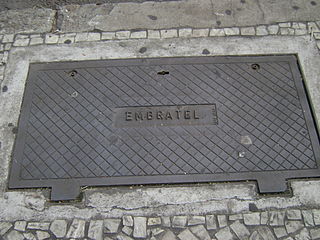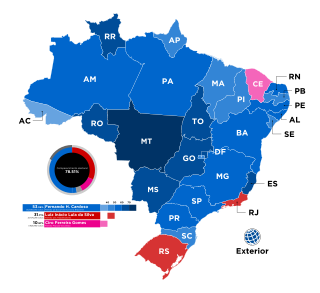Nepal's telecommunication network has increased over the years significantly, with the number of telephone users reaching 40,789,198 as of 14 May 2019.
The People's Republic of China possesses a diversified communications system that links all parts of the country by Internet, telephone, telegraph, radio, and television. The country is served by an extensive system of automatic telephone exchanges connected by modern networks of fiber-optic cable, coaxial cable, microwave radio relay, and a domestic satellite system; cellular telephone service is widely available, expanding rapidly, and includes roaming service to foreign countries. Fiber to the x infrastructure has been expanded rapidly in recent years.

The telecommunications in Russia has undergone significant changes since the 1980s, radio was a major new technology in the 1920s, when the Communists had recently come to power. Soviet authorities realized that the "ham" operator was highly individualistic and encouraged private initiative – too much so for the totalitarian regime. Criminal penalties were imposed but the working solution was to avoid broadcasting over the air. Instead radio programs were transmitted by copper wire, using a hub and spoke system, to loudspeakers in approved listening stations, such as the "Red" corner of a factory. This resulted in thousands of companies licensed to offer communication services today. Due to the enormous size of the country Russia today, the country leads in the number of TV broadcast stations and repeaters. The foundation for liberalization of broadcasting was laid by the decree signed by the President of the USSR in 1990. Telecommunication is mainly regulated through the Federal Law "On Communications" and the Federal Law "On Mass Media"

The Nippon Telegraph and Telephone Corporation (NTT) is a Japanese telecommunications holding company headquartered in Tokyo, Japan. Ranked 55th in Fortune Global 500, NTT is the fourth largest telecommunications company in the world in terms of revenue, as well as the third largest publicly traded company in Japan after Toyota and Sony, as of June 2022. In 2023, the company was ranked 56th in the Forbes Global 2000.

The National Telecommunications and Information Administration (NTIA) is an agency of the United States Department of Commerce that serves as the president's principal adviser on telecommunications policies pertaining to the United States' economic and technological advancement and to regulation of the telecommunications industry.

The telecommunications policy of the United States is a framework of law directed by government and the regulatory commissions, most notably the Federal Communications Commission (FCC). Two landmark acts prevail today, the Communications Act of 1934 and the Telecommunications Act of 1996. The latter was intended to revise the first act and specifically to foster competition in the telecommunications industry.

Swisscom AG is a major telecommunications provider in Switzerland. Its headquarters are located in Worblaufen near Bern. The Swiss government owns 51 percent of Swisscom AG. According to its own published data, Swisscom holds a market share of 56% for mobile, 50% for broadband and 37% for TV telecommunication in Switzerland. Its Italian subsidiary Fastweb is attributed 16% of private clients and 29% of corporate clients share of Italian broadband and is also active in the mobile market.

ATLANTIS-2 is a fiber optic transatlantic telecommunications cable connecting Argentina, Brazil, Senegal, Cape Verde, Spain's Canary Islands and Portugal. It is the first submarine cable to link South America and the African continent.

Vivo, known as Vivo Brazil, is a brand of Telefônica Brasil, a subsidiary of Telefónica and the largest telecommunications company in Brazil. It is headquartered in the Brooklin Novo neighborhood of São Paulo.

Bharat Sanchar Nigam Limited(abbreviated as BSNL) is a state-owned telecommunications company, based in India, owned by the Government of India. It operates as a central public sector undertaking with its headquarters in New Delhi, India. BSNL falls under the jurisdiction of the Department of Telecommunications, which is part of the Ministry of Communications, Government of India. The company was established on 1 October 2000 by the Government of India. BSNL provides mobile voice and internet services through its nationwide telecommunications network across India. It is the largest government-owned-wireless telecommunications service provider in India. In 2022, BSNL reported a loss of Rs 57,671 crore since inception. In the financial year 2022-23 it incurred a loss of Rs 6,662 crore.

Embratel is a major Brazilian telecommunications company headquartered in Rio de Janeiro. The company was the long distance arm of Telebras until it was bought by the U.S. company MCI Communications for 2.65 billion reais during the 1998 break-up of Telebras. However, MCI Communications went bankrupt in 2003. Since 2003, it is owned by América Móvil, the Mexican telecommunications giant.

Northwest Fiber, LLC, doing business as Ziply Fiber, is an American telecommunications company based in Kirkland, Washington. Ziply is a subsidiary of WaveDivision Capital, a private investment company, which is also Kirkland-based. The company started operations on May 1, 2020, when it completed its acquisition of Frontier Communications Northwest operations and assets for $1.4 billion; Frontier sold its Northwest operations after filing for bankruptcy protection in April 2020. Ziply Fiber's footprint covers the Pacific Northwest region, specifically the states of Washington, Oregon, Idaho and Montana. Its key offerings include fiber internet and phone for residential customers, Business Fiber Internet, and Ziply Voice services for small businesses; and a variety of internet, networking and voice solutions for enterprise customers. The company will also continue to support DSL and grandfathered TV customers. Ziply has stated that it plans on investing $500 million to improve its network and service throughout its footprint. This includes the goal of bringing fiber to nearly 85% of its network, which mainly encompasses rural communities. As of June 2020, approximately 30% have access to fiber.

Frontier Communications Parent, Inc. is an American telecommunications company. Known as Citizens Utilities Company until 2000, Citizens Communications Company until 2008, and Frontier Communications Corporation until 2020, as a communications provider with a fiber-optic network and cloud-based services, Frontier offers broadband internet, digital television, and computer technical support to residential and business customers in 25 states. In some areas it also offers home phone services.
The Universal Service Fund (USF) is a system of telecommunications subsidies and fees managed by the United States Federal Communications Commission (FCC) intended to promote universal access to telecommunications services in the United States. The FCC established the fund in 1997 in compliance with the Telecommunications Act of 1996. The FCC is a government agency that implements and enforces telecommunications regulations across the U.S. and its territories. The Universal Service Fund's budget ranges from $5–8 billion per year depending on the needs of the telecommunications providers. These needs include the cost to maintain the hardware needed for their services and the services themselves. The total 2019 proposed budget for the USF was $8.4 billion. The budget is revised quarterly allowing the service providers to accurately estimate their costs. As of 2019, roughly 60% of the USF budget was put towards “high-cost” areas, 19% went to libraries and schools, 13% was for low income areas, and 8% was for rural health care. In 2019 the rate for the USF budget was 24.4% of a telecom company's interstate and international end-user revenues.

The Internet in the United States grew out of the ARPANET, a network sponsored by the Advanced Research Projects Agency of the U.S. Department of Defense during the 1960s. The Internet in the United States in turn provided the foundation for the worldwide Internet of today.

General elections were held in Brazil on 4 October 1998 to elect the President, National Congress and state governorships. If no candidate in the presidential election received more than 50% of the vote in the first round, a second-round runoff would have been held on 25 October. The election saw voting machines used for the first time in Brazilian history.
Global Village Telecom (GVT) was a Brazilian telecommunications company that offers services on landline telephone, broadband for both consumer and business, Pay TV and voice over IP. GVT has been in the market since the end of 2000. GVT today operates under the Vivo brand.

Broadband is a term normally considered to be synonymous with a high-speed connection to the internet. Suitability for certain applications, or technically a certain quality of service, is often assumed. For instance, low round trip delay would normally be assumed to be well under 150ms and suitable for Voice over IP, online gaming, financial trading especially arbitrage, virtual private networks and other latency-sensitive applications. This would rule out satellite Internet as inherently high-latency. In some applications, utility-grade reliability or security are often also assumed or defined as requirements. There is no single definition of broadband and official plans may refer to any or none of these criteria.

Telecommunications equipment is a type of hardware which is used for the purposes of telecommunications. Since the 1990s the boundary between telecoms equipment and IT hardware has become blurred as a result of the growth of the internet and its increasing role in the transfer of telecoms data.

Algar Telecom is a Brazilian telecommunications company present in the states of Goiás, Mato Grosso do Sul, Minas Gerais, Paraná, Rio de Janeiro, Rio Grande do Sul, Santa Catarina, São Paulo, and in the Federal District as well. The company is the only operator that remained private, even after the creation of Telebrás in the military regime, and it is characterized as the fifth largest company in the telecommunications segment. It serves more than one million and four hundred thousand customers - individuals, micro and small businesses, corporate customers, and carriers.
















